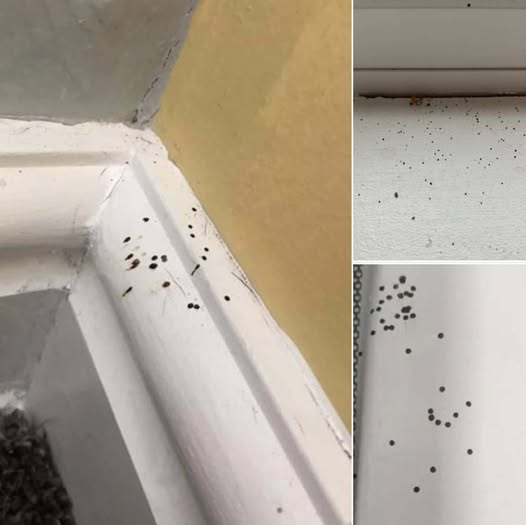ADVERTISEMENT
### 2. **Maintain a Clean Home**
Spiders, like most pests, are more likely to set up shop in areas that are cluttered and neglected. Maintaining a clean home is crucial to reducing the attractiveness of your home to spiders.
**Steps to take:**
– Regularly vacuum your home, especially areas where spiders like to hide, such as under furniture, in closets, and along baseboards.
– Dust regularly to prevent spider webs from building up in corners and ceilings. Pay special attention to hard-to-reach areas like ceiling corners, attic spaces, and behind furniture.
– Eliminate any clutter or piles of clothes, books, or boxes that might provide hiding places for spiders.
– Remove spider webs as soon as you see them. By doing so, you not only eliminate the visible signs of spiders but also discourage them from returning to that spot.
### 3. **Limit Outdoor Attractants**
Spiders are more likely to come inside if your home’s exterior is inviting. To reduce the chances of spiders finding their way inside, it’s essential to minimize outdoor attractants that can draw them near your home.
**Steps to take:**
– Trim back trees and shrubs that are close to windows, doors, and the foundation of your home. These plants can act as bridges for spiders to climb into your home.
– Keep outdoor lights to a minimum, especially near entry points. Lights attract insects, which in turn attract spiders. Consider using yellow or bug-repelling lights, as they are less likely to attract pests.
– If you have outdoor garbage bins, make sure they are tightly sealed to prevent attracting insects and spiders. Regularly clean them to eliminate any food or moisture that might draw pests.
### 4. **Remove Indoor Food Sources for Spiders**
Spiders are primarily driven by the need to hunt for food. By reducing the insect population inside your home, you can make it less inviting to spiders.
**Steps to take:**
– Keep your kitchen and dining areas clean by wiping down counters and tables after meals. This will help eliminate any crumbs or food particles that could attract insects.
– Store food in airtight containers to prevent attracting ants, flies, or other pests.
– If you have a fruit bowl, be sure to check for any overripe or rotting fruit, as it can attract flies and other insects.
– Use natural insect repellents or traps to manage the presence of other pests in your home.
### 5. **Use Spider Repellents**
Several natural repellents can be used to deter spiders from entering your home. These methods are non-toxic and can be a great alternative to chemical pesticides.
**Spider Repellent Solutions:**
– **Essential Oils:** Many essential oils are known to repel spiders, including peppermint, eucalyptus, tea tree, and citrus oils. You can mix a few drops of essential oil with water in a spray bottle and spray it around window sills, doors, and other entry points. Spiders dislike the strong smell, and it will discourage them from entering.
– **Vinegar:** Vinegar is another natural repellent for spiders. Mix equal parts vinegar and water in a spray bottle and spray the mixture around your home, focusing on areas where you’ve seen spiders.
– **Citrus Peels:** Spiders dislike the smell of citrus. Place citrus peels in areas where spiders are likely to appear, or use citrus-based cleaners to wipe down surfaces.
### 6. **Set Traps for Spiders**
If you have a more significant spider problem, using spider traps can help capture and remove them from your home. You can purchase adhesive spider traps from most hardware stores, or you can create your own using cardboard and sticky tape.
**Steps to use spider traps:**
– Place the traps in areas where you’ve seen spider activity, such as in corners, near baseboards, or in closets.
– Check the traps regularly and dispose of any trapped spiders.
– Remember, traps should be used as a part of an overall strategy, including sealing entry points and removing food sources.
### 7. **Consult a Professional Exterminator**
If you’ve tried the above methods and still struggle with a spider infestation, it may be time to call in a professional pest control service. Exterminators have the tools and knowledge to identify the source of the problem and implement a targeted strategy to eliminate spiders from your home.
**Pro Tip:** An experienced pest control expert will not only remove the existing spiders but will also provide advice on how to prevent future infestations.
## Conclusion
Spiders may be making a comeback in your home, but with the right prevention and treatment methods, you can minimize their presence and reduce the likelihood of an infestation. From sealing cracks and maintaining a clean environment to using natural repellents and traps, there are many strategies available to keep your home spider-free. Remember that spiders play an important role in controlling insect populations, so it’s essential to strike a balance between keeping your home comfortable and respecting nature’s pest control. By following the steps outlined in this article, you can confidently keep spiders at bay while enjoying a peaceful, spider-free home.
